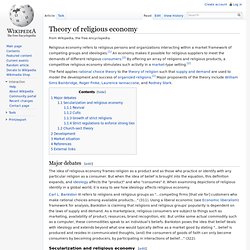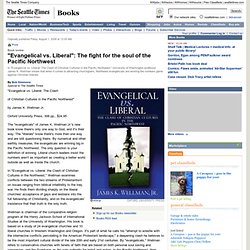

Theory of religious economy. Religious economy refers to religious persons and organizations interacting within a market framework of competing groups and ideologies.[1] An economy makes it possible for religious suppliers to meet the demands of different religious consumers.[2] By offering an array of religions and religious products, a competitive religious economy stimulates such activity in a market-type setting.[2] The field applies rational choice theory to the theory of religion such that supply and demand are used to model the development and success of organized religions.[1] Major proponents of the theory include William Sims Bainbridge, Roger Finke, Laurence Iannaccone, and Rodney Stark.

Major debates[edit] The idea of religious economy frames religion as a product and as those who practice or identify with any particular religion as a consumer. But when the idea of belief is brought into the equation, this definition expands, and ideology affects the "product" and who "consumes" it. Carl L. "Evangelical vs. Liberal": The fight for the soul of the. "Evangelical vs.

Liberal: The Clash of Christian Cultures in the Pacific Northwest" by James K. Vanishing boundaries: the religion ... Sociology of Religion. The Future of new religious movements. Rational Choice and Religious Economies.pdf (application/pdf Obj. Journal for the Scientific Study of Religion - Journal Informati. Review of Religious Research - the journal of the RRA. Social Compass. Believing Without Belonging: Just How Secular Is Europe?